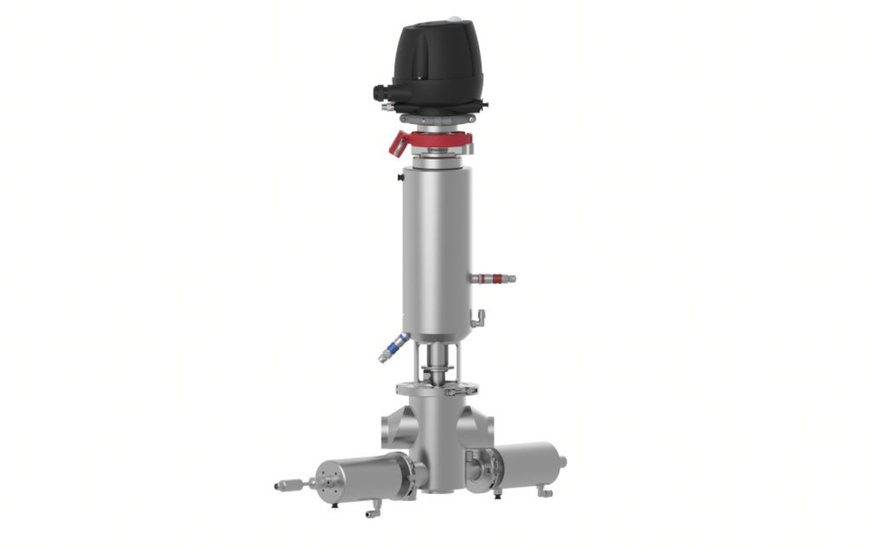www.ptreview.co.uk
08
'23
Written on Modified on
GEA EXPANDS LOTO VALVE LOCKING DURING MAINTENANCE OF ASEPTIC PROCESSES
GEA now also equips the aseptic double-seat valves of the Aseptomag range with lockout-tagout (LoTo) devices. The Group is thus expanding its range of safety devices for process plants with valve technology.

Inadequately secured process plants are often the cause of accidents in production. If machines are switched on without authorization during maintenance, the stored energy, may it be hydraulic pressure, compressed air, gas, steam, electrical energy, or fluids, can be released and significantly damage the operating personnel and the equipment itself. Since the GEA Aseptomag double chamber valves act as a transfer points between process steps, they can be used to control the plant’s energy supply and secure it very effectively with LoTo.
“An increasing number of companies prefer this comparatively simple protection against the sudden release of residual energy, although legal obligations may differ from country to country,” explains Pascal Bär, Senior Director of Product Management for GEA's aseptic valve technology. “Our Aseptomag valve is locked with a socket pin. The system doesn't even require removing the control top."

The double-chamber valves GEA Aseptomag DK now have a modified valve actuator for LoTo, which uses a special lantern and piston rod extension for the socket pin.
This is how LoTo works for aseptic double-chamber valves
For the aseptic double-seat valves, LoTo also comprises a mechanical lock (lockout) and a visual tag (tagout): The double-chamber valves GEA Aseptomag DK are equipped with a modified valve actuator that includes a special lantern and piston rod extension for the socket pin. To safely lock the valve, the operator inserts the socket pin into the lantern opening until the metallic stop is reached. This so-called disk lock principle prevents any movement of the actuator and valve disk. A red safety clamp around the threaded ring indicates that the subsequent process area is locked. In addition, a padlock is used for seamless identification and documentation.
GEA had already introduced the LoTo system for hygienic valve technology in 2021 and is now expanding its range to include the entire valve portfolio. Dairies, beverage, food, and new food manufacturers that process products at the highest level of hygiene can thus secure their plants consistently with LoTo.
www.gea.com

